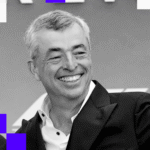Mark Zuckerberg has a history of making audacious bets that reshape entire industries – and losing spectacularly when they don’t pan out. After burning through US$46 billion on the metaverse with little to show for it, the Meta CEO is now doubling down with an even more ambitious wager: superintelligence AI.
This time, however, the stakes are higher, the competition more fierce, and the potential rewards more transformative than anything Meta has attempted before.
With nine-figure compensation packages and infrastructure investments that dwarf even the metaverse spending spree, Zuckerberg’s superintelligence AI gamble represents Silicon Valley’s most expensive talent war – one that could either cement Meta’s position as a tech giant or become another cautionary tale of visionary ambition meeting harsh reality.
The birth of Meta Superintelligence Labs
The formation of Meta Superintelligence Labs marks a shift for the social media giant. In an exclusive interview with The Information‘s TITV live-streaming programme, Zuckerberg told founder Jessica Lessin that “the most exciting thing this year is that we’re starting to see early glimpses of self-improvement with the models, which means that developing super intelligence is now in sight.”
The vision has driven the company to restructure its entire AI division, with the ambitious goal of delivering what Zuckerberg calls “personal super intelligence to everyone in the world.” The lab’s creation follows a period of internal struggles in Meta’s AI division, including management struggles, employee churn, and product releases that fell flat.
Rather than incrementally improving existing systems, Zuckerberg has opted for a complete overhaul, bringing in external leadership and re-imagining the company’s approach to AI development.
Are we witnessing the most expensive talent war in tech history?
Central to Meta’s superintelligence AI ambitions is a talent acquisition strategy that has sent shockwaves through the industry. Zuckerberg has embarked on a spending spree to create the new lab, offering as much as nine-figure pay packages to hire top researchers from companies like OpenAI, Google, Apple and Anthropic.
When The Information’s Lessin questioned reports of US$100-200 million compensation packages, Zuckerberg acknowledged the competitive nature of the market, stating that “a lot of the specifics that have been reported aren’t accurate by themselves. But it is a very hot market… there’s a small number of researchers, who are the best, who are in demand by all of the different labs.”
The Meta AI talent acquisition strategy extends beyond financial incentives. Zuckerberg said having “basically the most compute per researcher is a strategic advantage, not just for doing the work, but for attracting the best people.” The approach reflects an understanding that in the superintelligence AI race, talent density matters more than team size.
The Alexandr Wang acquisition: A US$14.3b gamble
The centrepiece of Meta’s talent strategy was its acquisition of Scale AI leadership. In June, the company made a US$14.3 billion investment in the AI startup, founded and led by Wang. Under the deal, Meta took a 49% stake in the company, and Wang and a team of top Scale employees joined Meta in leadership roles.
At just 28 years old, Alexandr Wang now serves as Meta’s chief AI officer, leading what the company has renamed “Meta Superintelligence Labs.” In the larger AI division, Wang has led a team of around a dozen newly-hired researchers, a handful of his deputies from Scale AI, and Nat Friedman, the former chief executive of GitHub.
The integration of Wang’s team as a re-imagining of how Meta approaches AI development. The group is working in an office space siloed from the rest of the company and next to Zuckerberg, highlighting the importance placed on the initiative.
A philosophical shift: From open source to closed development
Perhaps the most significant development emerging from Meta Superintelligence Labs is a potential abandonment of the company’s long-standing open-source philosophy. Last week, a small group of top members of the lab, including Wang, discussed abandoning the company’s most powerful open source AI model, called Behemoth, in favour of developing a closed model.
This represents a departure from Meta’s historical approach. For years, Meta has chosen to open source its AI models, making code public for other developers to build on. Meta executives have argued it is better for the technology to be built in public so that AI development will move faster and be accessible to more developers.
The shift reflects concerns about competitive positioning in the AI race. Meta had finished feeding data into its Behemoth model (training) but has delayed its release because of poor internal performance. The setback has prompted a serious reconsideration of the company’s approach.
Infrastructure as a competitive advantage
Beyond talent acquisition, Meta is making infrastructure investments to support its superintelligence ambitions. Zuckerberg revealed that the company is “building multiple, multi-gigawatt data centres” and pioneering new construction methods, including “weatherproof tents” to accelerate deployment.
The scale of these investments is staggering. Hyperion, one of Meta’s new data centres, “is going to scale up to five gigawatts over the coming years” and “the size of the site covers a significant portion of the footprint of Manhattan in terms of space.”
The infrastructure spending is enabled by Meta’s strong financial position, with Zuckerberg noting that “we can basically do this all funded from the cash flow of the company.”
The personal superintelligence vision
What distinguishes Meta’s approach from competitors is its focus on “personal superintelligence” rather than centralised AI systems. During his interview with The Information’s Lessin, Zuckerberg explained that while other labs focus on “wanting to automate all of the economically productive work in society,” Meta’s vision centres on “what are the things that people care about in their own lives… relationships and culture and creativity and having fun and enjoying life.”
The vision extends to Meta’s hardware ambitions, particularly its AR glasses initiative. In the same TITV interview, Zuckerberg predicted that “if you don’t have AI glasses, you’re going to be at a cognitive disadvantage” and described future scenarios where AI companions could “observe what’s going on in your life and be able to follow up on things for you.”
Industry implications and competitive dynamics
The implications of Meta’s superintelligence push extend beyond the company. Meta’s AI talent acquisition strategy has created salary inflation in the industry, forcing competitors to match or exceed Meta’s compensation levels to retain their researchers.
When asked about his interactions with competitors at Sun Valley, Zuckerberg acknowledged the competitive landscape, stating that “we’re not trying to target anyone individually. I want to make sure that I get to know all of the top researchers in the industry.”
The diplomatic approach masks what is fundamentally a zero-sum competition for a finite pool of top-tier superintelligence AI talent. The potential shift away from open-source development also signals a broader industry trend toward more proprietary approaches to AI development.
Conclusion: A defining moment for Meta
Meta’s superintelligence initiative represents a re-imagining of the company’s future. After the costly metaverse experiment failed to deliver results, Zuckerberg is betting even bigger on AI, with investments that could exceed US$100 billion over the coming years.
The success or failure of Meta Superintelligence Labs will likely determine not just the company’s future but the trajectory of the broader AI industry. With some employees expecting “an exodus of AI talent who were not chosen to join Wang’s superintelligence team,” the stakes are high.
Whether Meta’s AI talent acquisition campaign will yield the breakthrough technologies Zuckerberg envisions remains to be seen. What’s certain is that Silicon Valley’s most expensive talent war has begun.
See also: Apple loses key AI leader to Meta
Want to learn more about AI and big data from industry leaders? Check out AI & Big Data Expo taking place in Amsterdam, California, and London. The comprehensive event is co-located with other leading events including Intelligent Automation Conference, BlockX, Digital Transformation Week, and Cyber Security & Cloud Expo.
Explore other upcoming enterprise technology events and webinars powered by TechForge here.
Read the full article here















